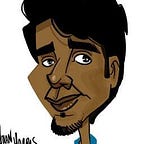The next big thing in consumer tech
There is a massive difference in the things that have gotten us great joy and happiness up till now and the things that will give us great happiness and joy in the future. It’s called time. Over time you will have a higher bar of expectation on the stuff that you interact with. Breakthroughs of today will me mundane tomorrow — that is a given. So what is going to be the huge deal of tomorrow?
There are a few easy ways of finding out where the market is going. YCombinator has captivated a lot of attention and mind share. What trails mind share, often not by much, is action and spirited contribution. The startup world has shown signs of coalescing into one large geographically distributed but philosophically united community with people generally helping each other out. Think of a startup, the trajectory is fairly well defined
- You launch, hustle, get an article out there on TC
- Have early users love your product
- Get people to spend time on it and build a loyal fan base
- Get into ethically troubled waters and milk publicity
- Keep cracking and iterating on the product, start building community
- Exit based on the community, assume monetization through data and ads
*A fanbase is different from a community in the sense that the interaction is skewed heavily to a hierarchy instead of distributed. Consider Reddit v/s Product hunt. Reddit has sparing involvement for mods. Product Hunt is almost entirely admins or invite only folks.
The community of the startup is now its own product. There is a willingness of spirit to “do what’s right”, “tackle the hard problems” and so on. This is the philosophical unity. There are startup lists and hackathons popping up everywhere. This is geo diverse but they speak the same language — iterate fast, focus on customer and so on. So when you look at the lodestone of this community you have a pretty good idea of where the market is going. YCombinator is a leading indicator. So is Peter Thiel. Investment theses of VC firms is also a great factor.
- Check out YC’s request for startups, go ahead, i ll wait.
- After that, check out Peter Thiel’s AMA. It isn’t just pushing his new book, there are some great tidbits of info about how he views the world specifically the bits v/s atoms argument.
The consensus is that there are increasingly more opportunities beyond apps and bits. Influencing other fields hitherto untouched through the principles of technology is a common and a fairly broad theme. The principles of technology include but are not limited to
- Automation of the mundane
- Efficiency at scale
- Predictability through data
- Humanizing through community
So you look at med-tech or food. Things not really explored before have now bubbled up for attention. It really is quite impressive. So what is the next big thing? Or did I just screw around with the title and delve into a pointless rabbit hole?
The next big thing will combine a variety of things that have worked well in the past and adapt them to the future expectations of the consumers. This means
- A highly defensible business model. Google is an example. Consumers do not pay for the service, it is paid for by others. Expect interesting things here at the intersection of data ownership and access. For example, are your actions on Facebook owned by you or Facebook? If a Liked page belongs to Facebook, then so does your interest? The same kind of model where interesting hybrids emerge to come up with clever business models will be the norm of the next big thing.
- A medium of populous delivery. Wearables are not there yet. It will be mobile. Wearables needs a killer use case and I think the iWatch (Apple Watch) will go some of the way but it will not be the primary mode of consumption. It will still be your phone. It will still be an app or a nexus of apps and it will be something that goes into your pocket.
- An experience that is cherished. For everyone 15 years ago, it was still all about the link and the content. It was a keyword and it was search. With Facebook and graph search, the feeling gradually pivoted to being about people. Random status messages and popups are still about interesting conversations with people manning Uber and Lyft. The more people are thrown knee deep into technology, the more they lose touch with the tactile and real aspects of connecting with a person. The more rarified the offline experience is, the more of a constrained resource that can become. The more you will see stories like this (Peak btw is an amazing book).
- A unique experience — Instacart, Uber, Lyft etc have automated the mundane and given a pretty memorable experience to their end users. It doesn’t have to be better, it has to be different. For the next big thing, not only will it be different, it will also be unique.
